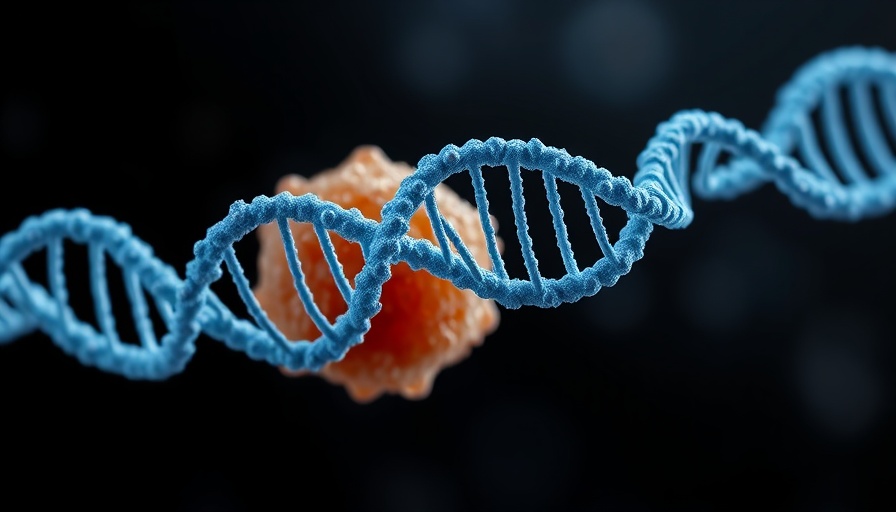
Understanding Aggressive Prostate Cancer: The Basics
When we hear that President Joe Biden has an "aggressive" form of prostate cancer, our minds immediately rush to concerns about his health. But what does "aggressive" truly mean in the context of cancer diagnosis?
Aggressiveness in cancer isn't determined by one single factor; it's a combination of how abnormal the cancer cells appear, known as the tumor's grade, and how far the cancer has spread, which is described as the tumor's stage. Understanding these elements can demystify many fears surrounding the diagnosis.
The Role of Tumor Grade in Evaluating Cancer
The grade of a tumor reflects how the cancer cells appear under a microscope compared to normal cells. Think of healthy prostate cells as orderly workers, while high-grade cancer cells seem chaotic. The grading scale used for prostate cancer ranges from 1 to 5, with Biden's cancer identified as a Gleason 9, fitting into the most extreme category of grade group 5. This indicates that the cells appear highly abnormal, suggestive of quick growth and potential spread.
Importance of Tumor Stage: Where is the Cancer?
Next in our evaluation is the tumor's stage, which tells us whether cancer has spread beyond its original site. It's crucial for determining treatment options. The staging of prostate cancer can be broadly classified into:
- Localized (stages 1-2): Cancer is confined only to the prostate.
- Locally Advanced (Stage 3): Cancer has spread to nearby tissues.
- Metastatic (Stage 4): Cancer has spread to distant parts of the body, as in Biden's case where it has moved to the bones.
The Emotional Aspects of a Cancer Diagnosis
Receiving a cancer diagnosis can evoke a wave of emotions, from disbelief to fear. For individuals, especially those in public life like President Biden, this personal journey can feel even heavier. Understanding the condition scientifically can provide some comfort and help patients find a pathway to manage their health.
The Cancer Moonshot: A Legacy of Hope
Biden's health journey is not just about the struggles of dealing with cancer; it also connects deeply with his legacy project, the Cancer Moonshot, which was started to honor his late son, Beau Biden. The initiative aims to accelerate cancer research and develop better treatments, reminding all of us of the reasons behind fighting cancer's aggressive forms. Through innovative technologies, personalized health strategies, and holistic wellness perspectives, there is hope for both cancer patients and their families.
Practical Tips for Health Optimization
In the battle against cancer, knowledge alone isn’t enough. Lifestyle changes play a crucial role in overall health and longevity. Here are a few strategies that are backed by science:
- Healthy Diet Protocols: Integrate a diet rich in vegetables, fruits, whole grains, and lean proteins, which can support cellular health and disease prevention.
- Fitness and Longevity: Regular exercise not only maintains physical health but also boosts emotional well-being. Aiming for at least 150 minutes of moderate exercise weekly can make a significant difference.
- Supplements for Longevity: Some studies suggest that supplements, including omega-3 fatty acids, Vitamin D, and antioxidants, may contribute to better health outcomes.
The Future of Cancer Research: What Lies Ahead?
With advancements in medical research and technology, possibilities for more effective treatments and interventions continue to surface. The focus on telomere science—the study of the protective caps on chromosomes that play a role in cellular aging—and genetic profiling could be game-changers in understanding cancer behavior and tailoring treatments accordingly.
Conclusion: A Call to Embrace Knowledge and Action
The news of an aggressive prostate cancer diagnosis, particularly that of a high-profile figure, reminds us of the importance of being proactive about our health and well-being. By embracing science-backed health insights and engaging in holistic wellness strategies, we can all strive toward longevity and disease prevention. Let's continue to raise awareness about the importance of early detection and comprehensive treatment options.
If you or someone you know is facing cancer, further educate yourself on current research and advancements by connecting with healthcare professionals and reliable health sources. Together, we can advocate for health optimization and inspire a community dedicated to healthspan enhancement.
 Add Row
Add Row  Add
Add 




Write A Comment